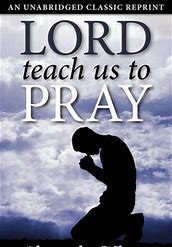I’m reading “Richard M. Nixon: A Life in Full” by Conrad Black. He tells an interesting story about one of Nixon’s trips to the Soviet Union.
“The visit took place during what Congress and the president had proclaimed, six years before, to be Captive Nations Week, during which the American people were urged to pray for all those under Soviet subjugation. It is not clear if any Americans actually did so, much less the effect of such supplications, other than that the gesture fulfilled its terrestrial purpose of completely aggravating the Soviet leadership.”
This anecdote got me thinking about prayer, or people’s reaction to prayer. The Soviets got aggravated. I daily get prayer requests for the sick and dying, and public prayer requests for all manner of folks in need. We get requests for prayers of thanksgiving and folks appreciate it.
Lately when prayers are offered or requested for folks who have been traumatized by say, a shooting, the reactions are changing. One politician said that “Prayer can’t fix this” when bloviating about another shooting, and someone with a wonderful grasp of language said “we don’t need anymore “f——” prayers, we need gun control”.
It always humbled me when traveling in places that were obviously in need of many things that they requested above anything else, prayer. To see children in India and Africa automatically folding hands and bowing heads without prompting to pray was touching and informative. That is not a natural reaction to gathering together, it has to be taught. I remember the first time we were asked to give an ex corde prayer in confirmation class. It was an embarrassing illustration of human nature that most in the class sat in red faced silence not able to think of one thing to pray for or even to give thanks.
Again it has to be taught. It is fascinating that the disciples did not ask for classes in public speaking or how to win friends and influence people they asked Jesus to teach them to prayer. (Luke 11:1)


